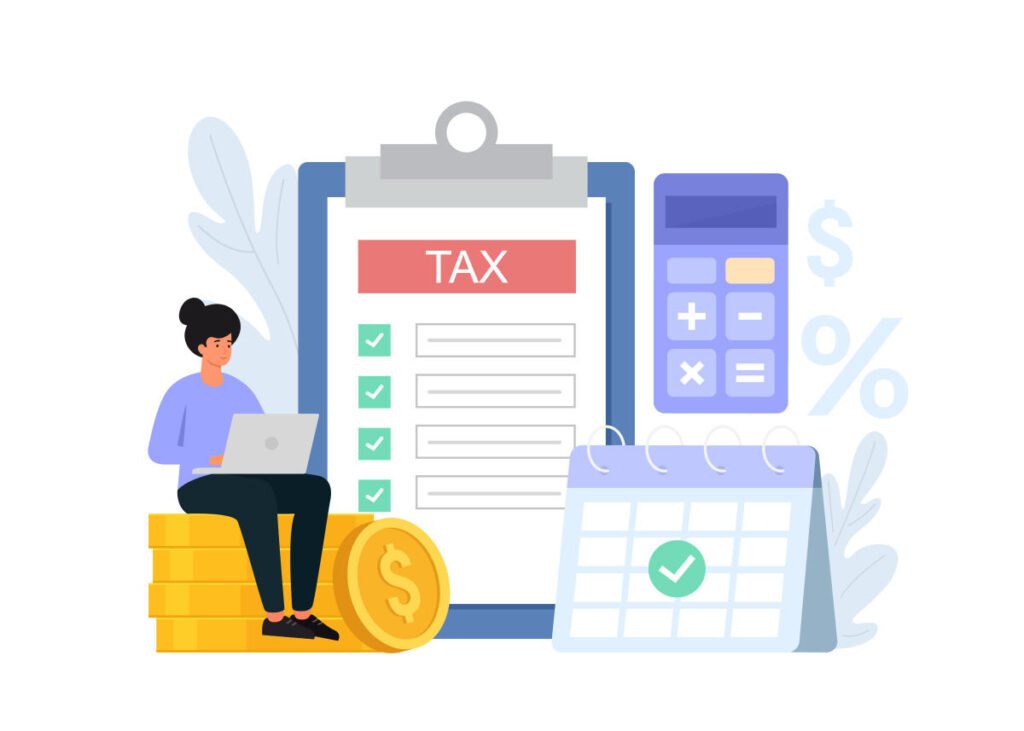Certificates of deposit (CDs) are a useful instrument for diligent savers. CDs will let you earn increased rates of interest than you’ll with a standard financial savings account, and your returns are assured with a set charge all through your CD’s time period. The catch is which you could’t contact your cash till your CD matures with out incurring penalties.
Whereas CD earnings might be appreciable, there are tax implications to remember. The IRS treats CD curiosity earnings as taxable earnings, which it’s essential to pay every year. Nevertheless, there are some methods to get round paying taxes on CD curiosity. Proceed studying to learn the way.
Do you pay taxes on CD curiosity?
Typically, it’s a must to pay taxes on CD curiosity.
CD curiosity over $10 is taken into account taxable earnings, and it’s a must to report these earnings in your tax return.
CDs are available various lengths, or phrases. Phrases can vary from lower than a month to 5 years or extra. Whatever the time period, it’s a must to pay taxes on the curiosity your CD earns. In case your CD’s time period is lower than one yr and matures inside the identical yr you open it, you’ll report these earnings in your tax return for that yr. But when your CD’s time period is longer than one yr — or spans a number of years — you’ll pay taxes on the curiosity you earn on the finish of every yr. Within the latter case, you’d report curiosity earnings on a number of, consecutive tax returns.
You usually must pay taxes in your CD earnings no matter the way you obtain curiosity funds. For instance, you could have the choice to withdraw your curiosity earnings earlier than maturity, otherwise you would possibly depart curiosity earnings in your account and permit them to compound. Both means, it’s a must to pay taxes on these earnings.
Learn extra: Do I’ve to pay taxes on my financial savings account?
Tax implications of early withdrawal penalties
You usually can’t withdraw out of your CD’s principal quantity with out consequence. Should you do, you’ll most certainly must pay early withdrawal penalties. Many monetary establishments cost these penalties based mostly on the size of a CD’s time period. Making an early withdrawal and paying the ensuing charges even have tax implications.
You possibly can deduct the quantity of any early withdrawal penalties out of your taxable earnings. For instance, should you pay $20 in early withdrawal penalties, you possibly can deduct $20 out of your gross earnings. Any early withdrawal penalties you paid must be famous in Field 2 of Kind 1099-INT for that tax yr.
The right way to keep away from taxes on CD curiosity
Although you usually must pay taxes on CD curiosity, there are some methods you possibly can keep away from or delay doing so. Holding your CDs inside sure kinds of accounts, together with IRAs, 529s, and HSAs, may help ease your tax burden.
IRAs and different retirement accounts
Contributions to a tax-deferred retirement account, comparable to a standard 401(ok) or IRA, are usually tax-deductible as much as contribution limits. And also you usually don’t must pay taxes in your earnings till you make withdrawals in retirement.
To defer taxes on CD curiosity till retirement, you possibly can open a CD inside a tax-deferred retirement account — whether or not it’s an employer-sponsored plan or an IRA.
529 plan
529 plans will let you save and make investments for instructional bills whereas benefiting from tax advantages. Whereas contributions to 529 plans aren’t tax-deductible, you don’t must pay taxes on earnings used for certified instructional bills, like tuition, books, and housing. Whilst you can spend money on issues like ETFs and mutual funds inside a 529, you can even spend money on insured merchandise like CDs and probably keep away from paying taxes on these CD earnings.
Well being financial savings accounts (HSAs)
Well being financial savings accounts (HSAs) supply a triple tax benefit: Contributions are tax-deductible, curiosity grows tax-free, and distributions are tax-free while you use them for certified medical bills.
HSAs are a strategic instrument you should use to save lots of up for healthcare prices comparable to insurance coverage premiums, prescriptions, units, and extra. However to benefit from an HSA, it’s a must to meet sure eligibility necessities; most notably, it’s a must to be enrolled in a high-deductible well being plan.
Like IRAs and 529 plans, there are a selection of investments you should buy inside an HSA, and your choices depend upon the monetary establishment that holds your account. Should you spend money on CDs inside your HSA, you possibly can keep away from paying taxes on the curiosity, offered you employ distributions to pay for qualifying bills.
Learn extra: The perfect CD charges available on the market right this moment
Steadily requested questions (FAQs)
What occurs should you don’t report CD curiosity in your tax return?
Should you don’t report CD curiosity or some other curiosity earnings in your tax return, chances are you’ll obtain an Underreported Revenue discover (Discover CP2000). This discover highlights a discrepancy between the quantity of earnings you reported and the quantity that was reported to the IRS out of your employer and different third events.
Should you didn’t report CD curiosity in your tax return, you’ll be on the hook for paying the taxes you owe, plus curiosity, in response to receiving this discover. Should you don’t reply promptly, you could have to pay extra curiosity and penalties.
How a lot tax will I pay on CD curiosity?
Curiosity earnings is taxed as extraordinary earnings, that means it’s topic to your federal earnings tax charge.
Are CDs taxed on the state stage?
CDs earnings are topic to state and even native taxes, and you could have to pay these taxes relying on the place you reside. Not all states have earnings tax, although. Different states have various tax buildings, some with flat charges and others with graduated charges. Briefly, whether or not you pay state earnings taxes on CD earnings and the way a lot you pay is dependent upon the place you reside.

